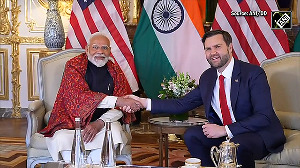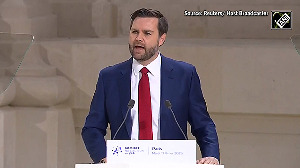Known as trade remedies, anti-dumping duties and countervailing measures against subsidies are permitted under global trade rules only when there is clear evidence that exporters are resorting to illegal trade practices and causing material damage to the domestic industry.
But governments are required to follow a set of rules before invoking trade remedy measures, which are not meant to be used as non-tariff barriers.
The Doha rules mandate calls for improving the provisions in using anti-dumping and countervailing measures.
In a hard-hitting statement issued at the special Doha rules negotiating session at the World Trade Organization (WTO), India opposed several elements of the draft text, which includes attempts to prohibit subsidies for the country's small-scale fisheries.
Over the last ten days, a large majority of members at the WTO are up in arms against the draft text on rules for including the controversial zeroing methodology to inflate anti-dumping duties.
At present, only the United States wants to continue with the zeroing practice because of its thriving and powerful anti-dumping lobbies.
But a majority of members led by Japan have demanded complete prohibition of the zeroing methodology because it acts as a major barrier against their exports. Besides, several WTO dispute settlement panels have also ruled against the use of zeroing methodology by Washington in levying anti-dumping duties.
Despite overwhelming calls to prohibit zeroing methodology in the ongoing Doha Rules negotiations, the chair Ambassador Guillermo Valles Galmes of Uruguay went on to include the controversial practice in his draft text.
"We find it frankly amazing that your proposals on zeroing seek to multilateralise the practices of one member against the overwhelming view of the membership and contrary to the clear jurisprudence that has emerged on this issue," said India's trade envoy Ambassador Ujal Singh Bhatia.
"Acceptance of your proposals would actually allow members to raise tariffs in excess of what is necessary to offset the injury through dumping," India said. The inclusion of zeroing "would constitute a leap backwards", India argued.







 © 2025
© 2025